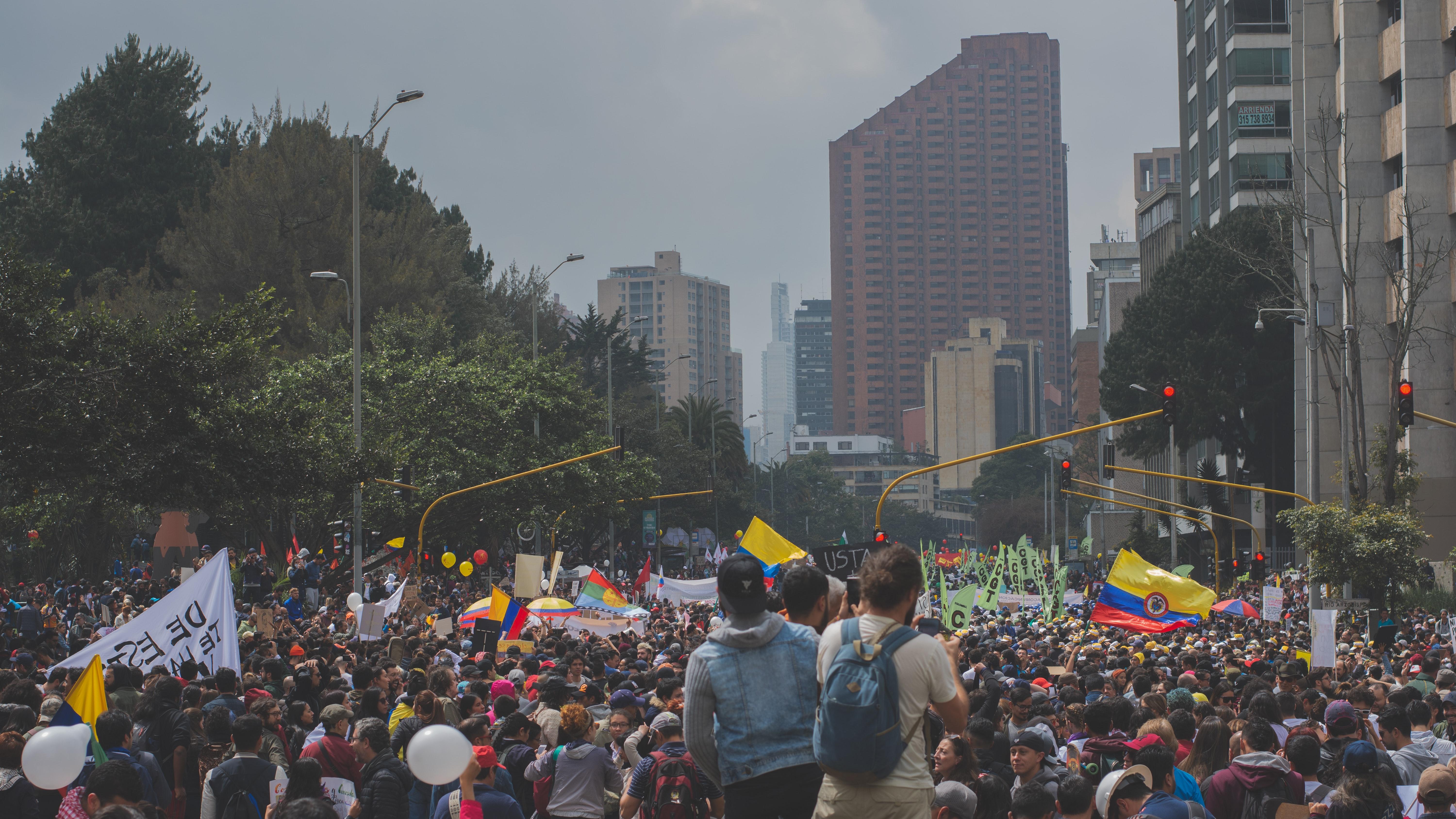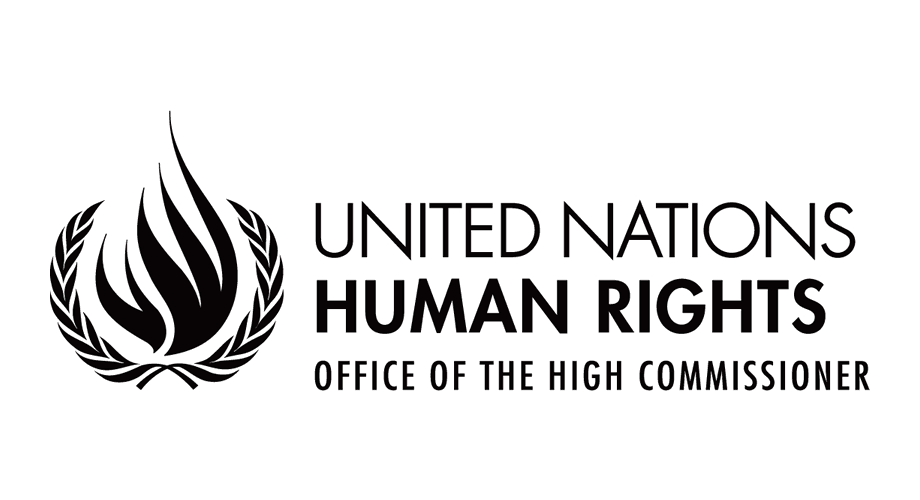- Home
- About Us
- Issues
- Countries
- Rapid Response Network
- Young Adults
- Get Involved
- Calendar
- Donate
- Blog
You are here
Colombia: News & Updates
 Colombia has the world's second largest population of internally displaced persons (five million) due to the half-century internal armed conflict—the longest-running war in the Western Hemisphere (since 1964). Control for territory and popular support among the three main groups (left-wing rebel forces FARC & ELN, right-wing paramilitaries, Colombian police/military) has left 220,000 killed, 75% of them non-combatants. Since 2000, the US has exacerbated the violence by sending more than $9 billion in mostly military assistance. Colombia, which has both Pacific and Atlantic coastlines, holds strategic interest for the US for global trade and military posturing.
Colombia has the world's second largest population of internally displaced persons (five million) due to the half-century internal armed conflict—the longest-running war in the Western Hemisphere (since 1964). Control for territory and popular support among the three main groups (left-wing rebel forces FARC & ELN, right-wing paramilitaries, Colombian police/military) has left 220,000 killed, 75% of them non-combatants. Since 2000, the US has exacerbated the violence by sending more than $9 billion in mostly military assistance. Colombia, which has both Pacific and Atlantic coastlines, holds strategic interest for the US for global trade and military posturing.
Learn more here.
RRN Letter
March 11, 2021
The Department of Antioquia was hardest hit by a wave of violence in February, due mostly to the predominance of the paramilitary group Clan del Golfo (Gulf Clan) in the region. Our letter to the president and attorney general of Colombia includes these incidents of horrific violence: a massacre of five farm workers, assassinations, threats to school teachers, and a 13-year old indigenous boy who lost his leg when he stepped on a landmine. We are urging that authorities in Colombia: (1) take all necessary steps to fully implement the 2016 Peace Accords, (2) immediately finalize the National Commission on Security Guarantees’ public policy for dismantling armed groups and their networks, and (3) strengthen the Special Investigation Unit to identify and prosecute both the material assailants and intellectual authors of attacks on human rights defenders and former combatants.
News Article
March 1, 2021
The Pacific port city of Buenaventura has a long history of violent conflict, which led to it being dubbed Colombia's "capital of horror". Since 1988, armed gangs have battled for territorial control of drug routes out of the port and carried out gruesome dismemberments in "casas de pique" (Spanish for chop houses). Buenaventura is now suffering a new wave of violence, and midwives like Feliciana Hurtado put themselves at risk by confronting armed fighters to help women living in violent areas deliver babies.
News Article
February 28, 2021
WOLA (Washington Office on Latin America) summarizes recent human rights cases in Colombia from the past several weeks including murders of social leaders, violence and threats towards Indigenous and Afro-Colombian elders and social leaders, violence of paramilitary towards individuals and in Indigenous territories, and continued fighting of paramilitary groups in Buenaventura, the large port city on the Pacific coast. The city’s majority Afro-Colombian population lacks access to necessities like clean water, decent jobs, and educational opportunities. Residents are calling for major policy changes to address both the current conflict and underlying issues.
News Article
February 26, 2021
Teacher unions are staging protests in Bogota today over unfulfilled government agreements and to call for safe conditions in order to return to classes following school closures due to the pandemic. Teachers will stage a rally outside the Ministry of Education, where they will present a series of conditions over the reopening of schools.
News Article
February 26, 2021
Michelle Bachelet, High Commissioner for Human Rights (UNHCHR), presented her oral update (https://www.ohchr.org/EN/NewsEvents/Pages/DisplayNews.aspx?NewsID=26806&...) as well as her reports on Colombia, Guatemala, and Honduras. Few countries in the world were as open to international human rights scrutiny as Colombia, which has the largest UNHCHR in Latin America and serious deadly violence against social leaders. Turning to Guatemala, Ms. Bachelet welcomed measures strengthening access to culturally appropriate health care and providing information in accessible formats and in indigenous languages. Her Office continued to observe the erosion of civic space, with increasing attacks and intimidation against human rights defenders, including journalists in the country. Honduras’ human rights challenges included high levels of violence, impunity, discrimination and lack of access to economic, social and cultural rights. The COVID-19 pandemic, and the impact of hurricanes Eta and Iota, had exacerbated the obstacles faced by the most vulnerable people.
RRN Letter
February 26, 2021
ADISPA is doing critical work to protect the Amazonian Pearl Peasant Reserve Zone (ZRCPA) of Putumayo by promoting reforestation initiatives and denouncing the socio-environmental effects of oil extraction operations. For that reason, powerful groups want them out of the way. The InterChurch Commission of Justice and Peace (CIJP) recently verified a plan by the the armed group Comando de la Frontera (Border Command) to kill or displace members of the Association for the Integral and Sustainable Development of the Amazonian Pearl (ADISPA). During the first weeks of 2021, the Comando de la Frontera visited some of the 700 families who live in the ZRCPA to tell them that ADISPA should disappear, and that no social organization that wants to work in the territory could do so if it disobeys their rules. Because of these ongoing threats, we are urging that authorities in Colombia grant members of ADISPA protection measures, in consultation and in agreement with them.
News Article
February 25, 2021
Widespread violence continued to impact Colombia’s most vulnerable and marginalised communities and social groups in 2020, according to the annual report on the country by the United Nations High Commissioner for Human Rights (OHCHR). The report also found alarming levels of inequality, with women badly affected, and lack of access to essential services, with some regions lacking clean water and medical care. In many instances, the Colombian state has failed to address security and humanitarian concerns, particularly in regions long impacted by conflict, structural poverty and historic state abandonment. The global pandemic also impacted on the human rights of the population. Among its recommendations, the OHCHR prioritised full implementation of the peace agreement in addressing the endemic violence which has claimed hundreds of lives since late 2016.
RRN Letter
February 14, 2021
Death threats to María Eugenia Mosquera Riascos are part of a larger context of illegal armed groups intimidating members of the human rights community in Buenaventura, Valle del Cauca Department. These armed groups, responsible for forced recruitment of youth, are trying to impose their control in the city through fear, various extortionist tactics, and advertising what they call a “social cleansing” in the city. Maria Eugenia Mosquera Riascos is the legal representative of CONPAZCOL (Association of Communities Building Peace in Colombia) and member of the Roundtable for Access to Justice, Victims, Protection and Memory), which participates in the Buenaventura Civic Strike Committee. On January 7, again on January 29 and 30, she received a series of threatening messages on her mobile phone. One threat read: “you have three guys watching you,” and “we are the ones who kill informant toads of those other people.”
Event
February 14, 2021
This weekend, we honor the Colombian laborers who make many sacrifices to supply the US with 2 out of every 3 flowers. We ask you to take action to show your solidarity with flower workers this weekend. Flower workers, who are largely women in economically vulnerable situations, have reported health issues, mistreatment by management and grueling work hours- up to 22 hours a shift between the Valentine’s and Mother’s Day months. With the signing of the 2011 Labor Action Plan following the United States-Colombia Trade Promotion Agreement, the United States committed to protecting the rights of flower workers. Yet, almost 10 years later, the promises to workers have been left unfulfilled. Hear from workers about strategies they are implementing to promote their cause of labor rights and justice.
News Article
February 13, 2021
In Buenaventura, the port that accounts for 70 percent of Colombia’s import-export activity, a paramilitary-derived gang that briefly dominated criminality in the city, “La Local,” underwent a December schism into two factions, the “Chotas” and the “Espartanos.” Daily street fighting has ensued, leaving much of the city’s 400,000 people in the crossfire. Estimates of the toll so far in 2021 range from 20 to 52 killed, and 112 to 1,700 families displaced.


